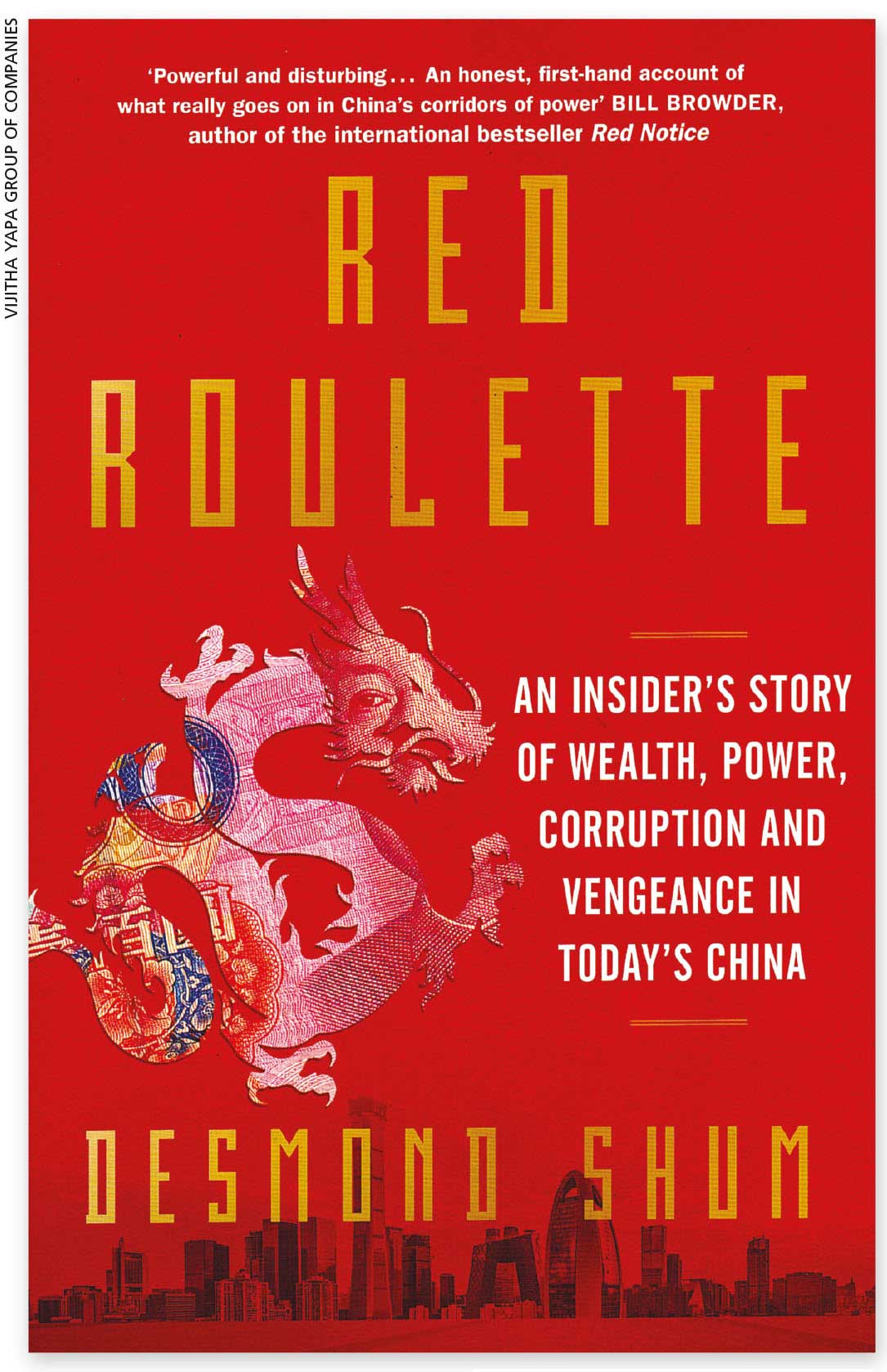BOOKRACK
By Vijitha Yapa
 In Sri Lanka, the Chinese were once known for their dentistry since a good set of teeth is vital for a smiling face. But we’re seeing a different type now, and the chickens are coming home to roost in return for all the aid and investment we have received from China.
In Sri Lanka, the Chinese were once known for their dentistry since a good set of teeth is vital for a smiling face. But we’re seeing a different type now, and the chickens are coming home to roost in return for all the aid and investment we have received from China.
China is demanding its pound of flesh – and the message seems to be that we must accept whatever it exports.
The most recent issue is the controversial Chinese fertiliser where samples inspected by Sri Lanka were rejected. Those who had the courage to speak out against the substandard product had their expert opinions dismissed out of hand.
This scenario (where China willingly offers loans at existing or lower interest rates and then turns nasty when payment isn’t made on time) constitutes a lesson that some African countries have learnt to their cost – i.e. quick fixes often rapidly transform into major woes!
As Barbara Tuchman wrote in her famous book titled ‘The March of Folly: From Troy to Vietnam,’ humanity has continued to make the same mistakes through the years and decades, and never learns from mistakes made by others.
A new book by Desmond Shum titled ‘Red Roulette: An Insider’s Story of Wealth, Power, Corruption and Vengeance in Today’s China’ describes the Chinese mind in detail, and how those in power use people.
Shum should know since he enjoyed influence, and made billions in real estate, stocks and shares. His wife Whitney Duan and he benefitted from the patronage of those in power. But when Shum fell from grace, his wife was arrested by the authorities and her where-abouts are unknown.
He believes she has been eliminated and suspects that the Central Commission for Discipline Inspection of the Chinese Communist Party (CCP) is responsible for
her disappearance.
Shum confesses she played a dangerous game in the political environment of the emerging superpower and describes how they had “operated at the centre of power in China, cultivating premiers, high-ranking members of the Chinese Communist Party (CCP) and their families,” adding: “We counselled the up-and-coming officials who had all of China in their grasp.”
He also notes that relationships among those who play the party system in China are calculated according to profits and losses. The Chinese learnt their lessons from the Opium Wars and how the British once ran territories under their control.
They were subjugated at the time but are now following in Britain’s footsteps. A proud and independent nation was brought to its knees by the British; and now the Chinese are determined to make sure they do the same.
Shum’s wife had arranged for promotions for scores of people inside the CCP and government ranks. He alleges that unexplained disappearances occur in China where the Communist Party holds power; and despite legal protection, party investigators seize and imprison people indefinitely on the flimsiest of pretexts.
The author also explains how those investing in China circumvent rules – such as by flouting the payment of duty in search of profits. He soon learnt that in this country, all rules could be bent as long as you had ‘guanxi’(connections to the system).
And the inner workings of the political system show how families of senior officials gorge themselves at the trough of economic reforms. Lucrative plots of land are offered to cronies for real estate development and CCP leaders launch ‘corruption investigations’ to purge their political opponents.
Shum met his wife to be in Beijing; later, he married and subsequently divorced her. Her skill was cultivating links with those who were high up in the Communist Party, as well as their wives and close relatives.
One of their early contacts was ‘Auntie Zhang’ (whose real name is Zhang Peili), the wife of former Chinese Prime Minister Wen Jiabao. Duan soon became indispensable to Zhang, and the lives of this author and his wife were transformed due to that relationship.
Their wealth was estimated to be about US$ 3 billion.
Envious Chinese politicians sneaked on each other and leaked information to Western journalists, who lapped it up and splashed the inside story in banner headlines. This among other events led to the rise of President Xi Jinping who used the exposés to have many of his opponents arrested.
By 2020, Chinese authorities had investigated more than 2.7 million officials on alleged corruption charges and punished nearly half of them. Xi changed the rules in China so that instead of two terms, he would be president for life… and today, he holds more power than any other CCP leader before him.




